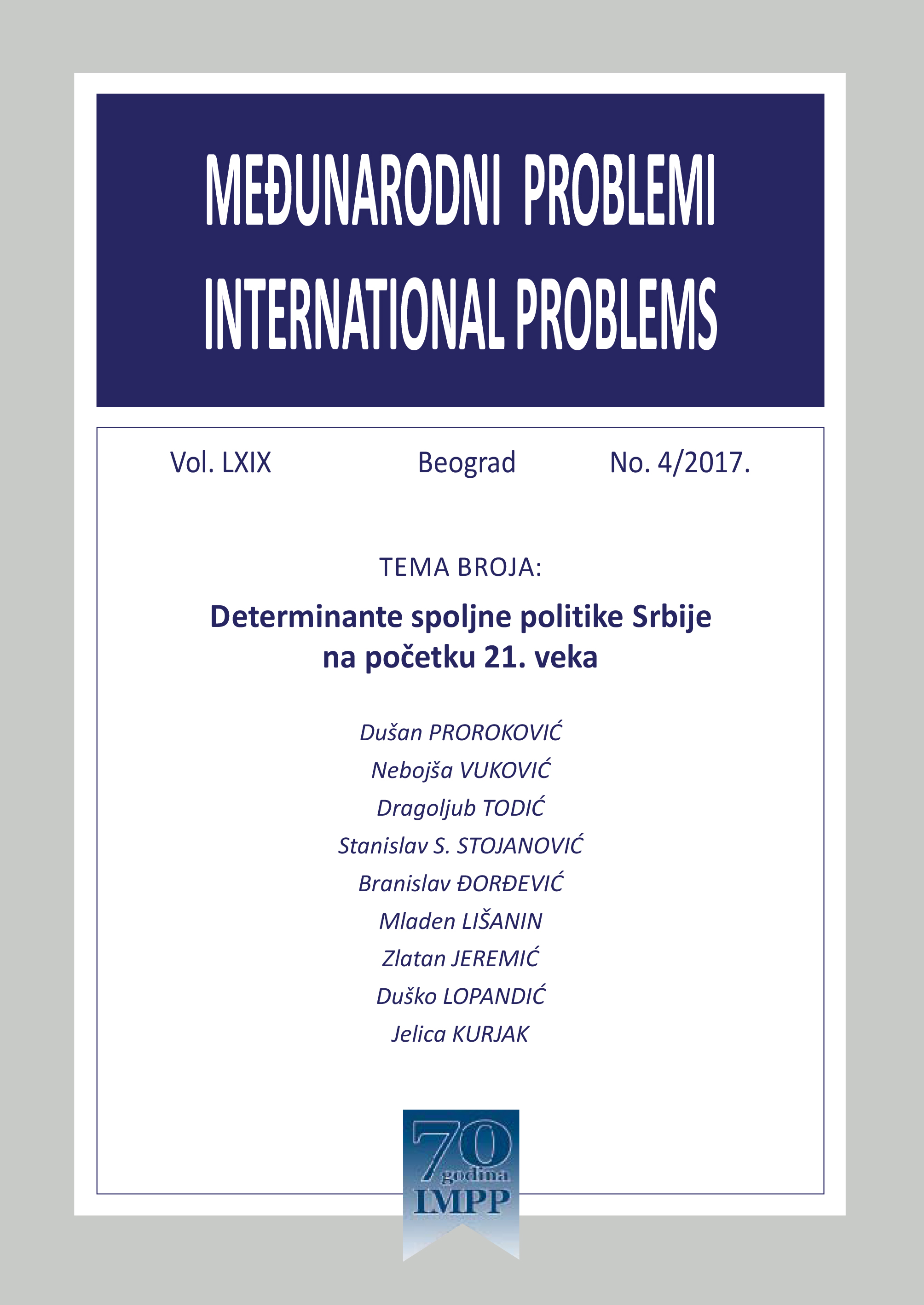Normativno-strateški okvir spoljne politike Republike Srbije: „evropeizacija” i (ne)transparentnost
NORMATIVE AND STRATEGIC FRAMEWORK OF FOREIGN POLICY OF THE REPUBLIC OF SERBIA: “EUROPEANISATION” AND (NON)TRANSPARENCY
Author(s): Dragoljub TodićSubject(s): Politics / Political Sciences
Published by: Институт за међународну политику и привреду
Keywords: foreign policy; Serbia; Europeanisation; regulations; strategies; ratification of international treaties; harmonisation; European Union; transparency; public participation
Summary/Abstract: The aim of the paper is to determine the characteristics of the foreign policy of the Republic of Serbia (RS) based on the analysis of regulations and strategic documents relevant for foreign policy. The first part of the paper points out the general context of discussion. In the second part of the paper, an overview of the most important regulations and strategic documents relevant to foreign policy is presented. Analysis shows that key characteristics of the foreign policy of the RS are the “Eurocentrism” and (thus derived) “Europeanization” as a process of reforming the legal and political system of the RS. The author emphasizes the importance of the foreign policy decision-making process. Two elements of the legislative procedure are analyzed from the point of view of the possibility of public participation in the decision-making processes. These are the following: 1) ratification of the international treaties, and 2) the process of harmonization of national regulations with EU regulations. The open issues and ambiguities in the way of regulating these issues are emphasized. In addition, in the legislative procedure, the regulatory impact assessment also takes a special place. However, there are some open issues in the application of the regulatory impact assessment. In conclusion, it is noted that EU membership is a key foreign policy objective of the RS with a strong influence on the internal legal and political system. However, in the two analyzed formal procedures which represent the elements of the foreign policy of the RS (within the process of “Europeanization”), guarantees for the transparent implementation, i.e. effective public participation in their implementation have not been contained. This can have a significant impact on the quality of the activities which are being carried out and the results of the process of “Europeanization”, as a strategic foreign policy commitment of the RS
Journal: Међународни проблеми
- Issue Year: LXIX/2017
- Issue No: 4
- Page Range: 442-464
- Page Count: 23
- Language: Serbian

